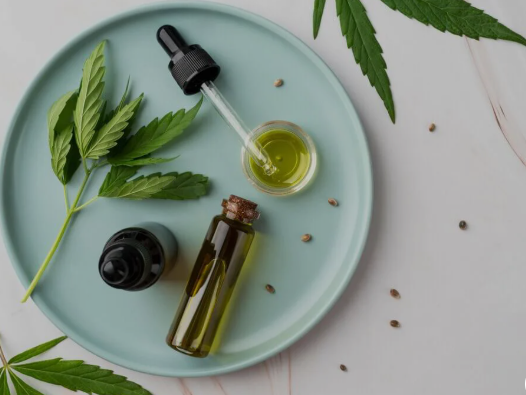With the rise in popularity of natural cures, cannabinoids present the latest trendy subject. CBG (Cannabigerol) and CBD (Cannabidiol) are probably the two most severe. With all the buzz around cannabis products, it becomes important for customers, companies, and content developers alike to distinguish CBG from CBD. Whether affiliate marketing is something you want to get into or you are just curious about which cannabinoid is better for your health, this article on CBG vs CBD is a complete guide for you.
What Are Cannabinoids?
Prior to entering into CBG vs. CBD, it is best to understand what cannabinoids are. Cannabinoids are compounds naturally occurring in the cannabis plant. These compounds interact with the body’s own endocannabinoid system (ECS), which governs such physiological processes as mood, appetite, sleep, and immune response.
Being the most popular cannabinoid known for its psychoactive effects, THC has overshadowed CBD and CBG, which, however, offer very potent health benefits minus the ‘high’.
What is CBD?
CBD (Cannabidiol) is the most famous and most used non-psychoactive cannabinoid. It has been the subject of innumerable scientific studies and is said to be used for:
- Control of anxiety and stress
- Relief of chronic pain
- Support for sleep
- Control of inflammation
- Control of epilepsy and seizure (Epidiolex by FDA)
CBD is found in large amounts in hemp plants and is widely available in oils, tinctures, capsules, gummies, and skincare products.
What is CBG?
CBG (Cannabigerol) is often referred to as the “mother of all cannabinoids” because it is the precursor to other cannabinoids like THC and CBD. CBG-A is converted into THC-A, CBD-A, and CBC-A as the plant matures.
CBG is produced in much smaller amounts compared to CBD, which contributes to its rarity and high price. Yet, it’s growing in the spotlight for the potential benefits it may provide, such as:
- Neuroprotection
- Antibacterial effect, mostly against MRSA
- Appetite stimulation
- Reduction of inflammation in bowel disease
- Potential therapy for glaucoma

CBG vs CBD: The Key Differences
| Feature | CBD | CBG |
| Source | Mature hemp/cannabis plants | Young cannabis plants |
| Psychoactive? | No | No |
| Abundance | High | Low (1% or less in most strains) |
| Extraction Cost | Lower | Higher (due to rarity) |
| Common Uses | Anxiety, pain, epilepsy, sleep | Neuroprotection, inflammation, eye health |
| Market Availability | Widely available | Emerging but growing |
| Interaction with ECS | Indirect (modulates receptors) | Direct (binds to CB1 & CB2) |
How CBG and CBD Work in the Body
- The key differentiating factor in CBG vs CBD is how each works with the endocannabinoid system.
- CBD acts indirectly through receptors such as TRPV1 (pain- and inflammation-related) or 5-HT1A (mood and anxiety).
- CBG binds directly to the CB1 and CB2 receptors and may, therefore, provide more potent therapeutic effects in some areas.
Consider that CBG mechanisms would allow an almost immediate effect in certain cases of pain relief or focus enhancement, whereas CBD works in a more general arena, providing balance to the wellness of an individual in the long run. click here
Which One Should You Choose?
The final choice of CBG vs. CBD should depend on your special requirements:
- Anxiety and Sleep: CBD has more scientific backing and is better suited.
- Neuroprotection and Brain Health: CBG may be slightly more advantageous.
- Digestive Issues (like IBD or Crohn’s): CBG seems to be an anti-inflammatory.
- Pain and Inflammation: Both are helpful, but perhaps better with a CBG + CBD combo.
- Skin Conditions: CBD is the most famous one; meanwhile, CBG shows antibacterial effects.











